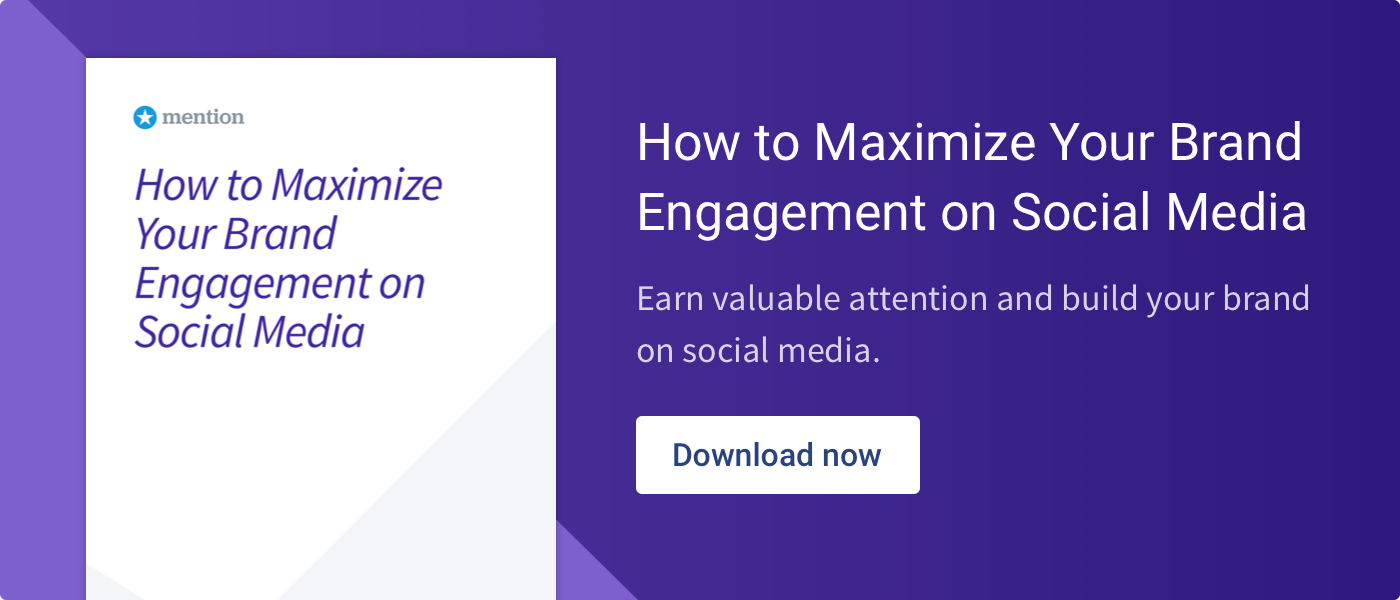Market research is critical for any organization.
Whether you’re a new entrant in the market or are an established brand, you need to conduct it regularly in order to understand your potential customers, industry, and more.
In simple terms, it is the process of gathering information about consumers: their needs, their likes, dislikes, and preferences.
Market research is essentially done to get an idea of what exactly consumers want. It can help enormously when it comes to tailoring your products and services to be more attractive to them.
This, in turn, can help you generate more sales and get increase revenue.
Where do you think you can get unsolicited opinions and market research about millions of products? That’s right, social media.
You can use the power of public online conversations to collect huge chunks of valuable customer data. With it, you’ll be able to find the general social media sentiment and conduct better market research.
In fact, Dove used social listening to collect a huge amount of data from social media. They found that 80% of females had experienced body shaming comments.

After that insight, they launched the #SpeakBeautiful campaign, which helped them increase their sales by 63%.
That’s just one of the many examples out there about how social listening can help with market research. Let’s look a few other key ways your brand can benefit from it.
1. Conduct detailed audience research
The most important thing for any brand is to find out who your target audience is.
This allows you to target your marketing efforts to the right people. After all, what’s the point of marketing if most of your content is irrelevant to your audience?
With social listening, you can use tools with the ability to segment the audience using various parameters like keywords, location, language, and even by influencer score.

This can help you zero in on an more specific audience, which can be very helpful.
This stands true not only for new brands, but also for well-established brands.
You need to keep up with the changing interests and needs of consumers. This can help your brand remain relevant to them over a long period of time.
2. Find out what customers think about your brand
There’s no better place to find out what customers think about your brand than on social media.
People often take to social media to talk about their experiences with a brand. Their reviews can give you an in-depth understanding of your brand’s credibility and reputation.
You can learn whether or not your customers are happy with your brand. You can also figure out their pain points and the aspects of your brand that they like.
A great way to find out what customers think about you is by tracking brand mentions. Whenever somebody mentions your brand in a post, you can arrange to get notified about it. Or you can use the search option to find out who has mentioned your brand, and in what context.
Media monitoring tools can help you get powerful real-time insights about your brand mentions on social media, forums, blogs, and the rest of the web.
Keeping track of what people say about your brand and products online can help you identify a crisis quickly and respond to it to protect your brand’s reputation.
It doesn’t matter whether customers write positively about your brand or negatively. The bottom is that social listening can help you improve your services and fine-tune them for your customers.

Image via Element7Digital
For example, Zelmer, a vacuum cleaner manufacturer, came across a post regarding their vacuum cleaners. A mother had surprised her son, who loved vacuum cleaners with a Zelmer vacuum cleaner-shaped cake.

Image via Element7Digital
When Zelmer came across the post, they offered them a free tour of their factory. This created a memorable experience for the customer, also winning over the hearts of other customers.
3. Measure the effectiveness of various campaigns
Social listening can help you collect data about what people are looking for. It can also help you figure out how well your campaigns are working.
A great way to do this is by monitoring the campaign’s engagement right from the very beginning.
Tracking the changes of the volume of your brand mentions before, during, and after the campaign can give you an idea of what’s working and what is not.
Based on the engagements, you can see which parameters of your campaign need to be modified. That will help you optimize your marketing campaigns for the future. There is no better way to find out the success of a campaign than by getting data from your customers themselves.
You may have found quantitative data regarding your campaign with ease. Hard data is great to have for assessing your success. However, apart from the numbers, you also need to figure out the reasons. The numbers may tell you the “what” but not the “why.” For that, you need qualitative data – which is where social listening comes in.

Let’s say that you have a fashion brand. You will be able to find quantitative data about how many people chose your brand, also what your most popular products and markets are.
However, you won’t be able to figure out why people chose you above your competition. You need to find out what makes you different from the competition so you can continue to maintain and nurture it. Social listening can help you gather this qualitative data using feedback and opinions. This can help you assess your campaigns and fine-tune them for the future.
Social listening can also help you measure the success of your influencer marketing campaigns.
Based on your goals, you can figure out how the posts by your influencers are performing. However, keeping track of their posts and your overall influencer marketing campaigns can be a tough task.

To make your job easier, you can use influencer marketing tools to see how each of your influencers is performing. This will give you a clearer idea of which influencers are the most ideal for your campaign. You can even find out the complete ROI of your campaign, right from the platform without much effort.
4. Evaluate competitors
While social listening can help you figure out things about your own brand, you can further use it to eavesdrop on the competition.
You’ll be able to find honest opinions about them on social media, helping you understand what makes them different and why people choose them. This can give you an idea of your position in the market as well.
Monitoring their moves can give you an idea of the strengths of their branding efforts, as well as their weaknesses.
You can see what’s working for them, and what isn’t. This can even help you shape your own branding strategies by keeping theirs in mind.
5. Come up with new campaign ideas
Social listening helps to take your market research to the next level.
Compile data about the trending campaigns in your industry: which platforms they used, why they work or didn’t, and more.
Once you have these insights, you can develop new ideas by using them.
The data can help you design your future campaigns based on what works for your customers and what doesn’t.
You can come up with new and innovative ideas that will have an impact on your target consumers. You’ll be able to create campaigns that match their interests, because you already have an idea of what they like.
The more you know about the industry and your market, the better it is for your brand. Studying it beforehand can help you plan your campaigns more strategically.
Rather than throwing ideas around, it is better to figure out exactly what people want so you can focus your efforts on ideas that will deliver positive results.
For instance, Da Grasso Pizza created a one-day campaign by tracking people who posted about wanting a pizza. They then put in the effort to find the addresses of these people and went to their homes to deliver pizzas.

Image via Element 7 Digital
They delivered 52 pizzas and this increased the amount of online discussions about them by 135%, their interactions on the Facebook page also shot up by 25%.
Final thoughts
Social listening can help you collect loads of data about your brand’s footprint.
Not only can it help you make more informed decisions about marketing your brand and your products in the future, you can also use this data to understand your customers, industry, and competitors better.
All in all, this will allow you to impress and retain your customers as well as attract new ones.
Have you used social listening to improve your market research? If so, how has it helped you to shape your marketing strategies better? Let us know in the comments.
